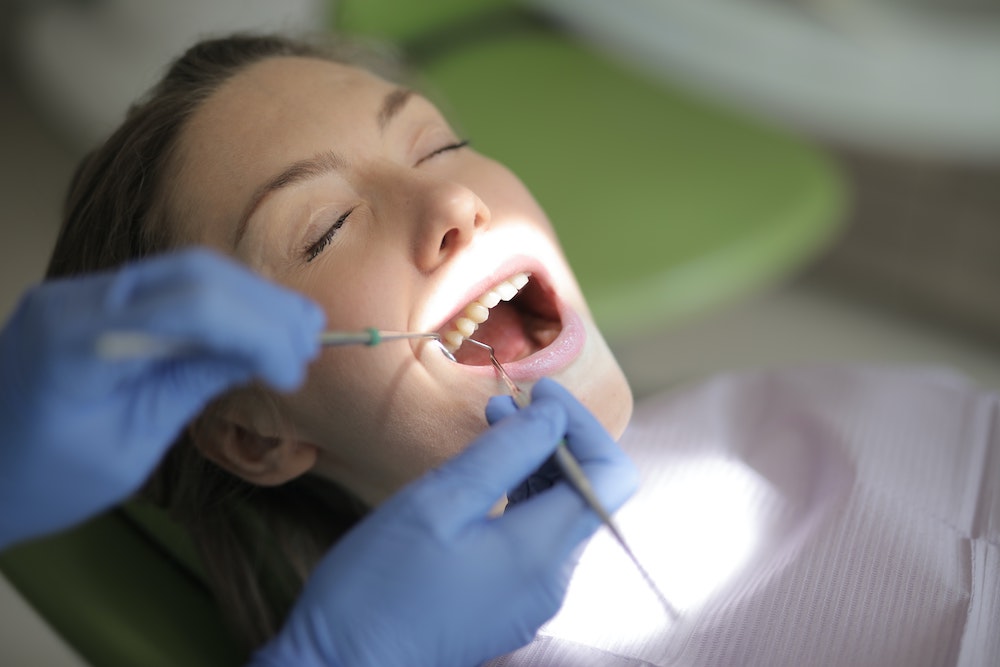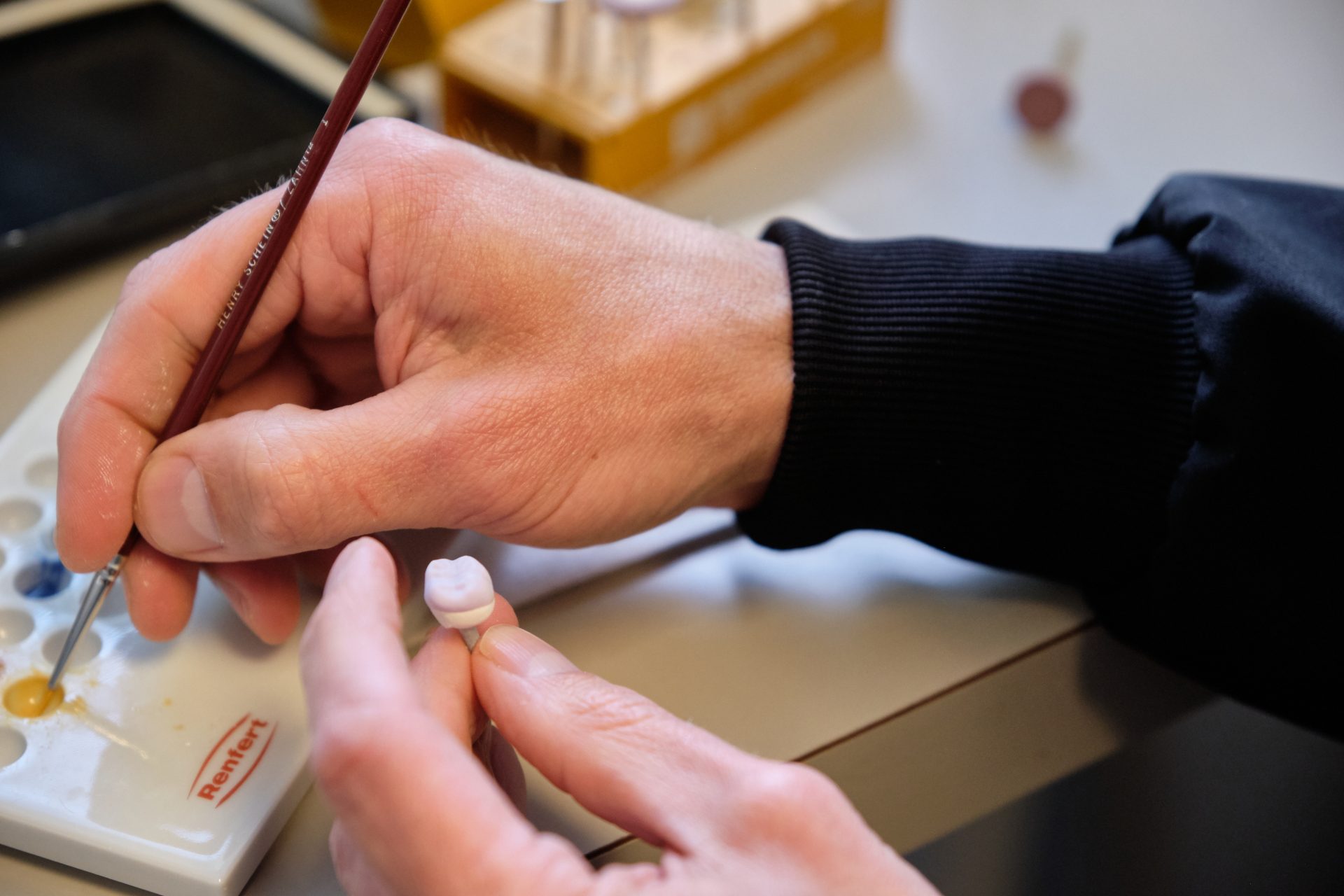
My Crown Fell Off What Should I do?
May 4, 2020
Top Healthy Snacks for Kids Teeth
June 5, 2020Key Takeaways:
Signs of Gum Disease:
Swollen and bleeding gums are often signs of gum disease, ranging from mild gingivitis to more severe periodontitis. Symptoms include redness, bleeding when brushing or flossing, receding gums, and even loose teeth.
Importance of Oral Hygiene:
Daily habits like brushing twice a day with fluoride toothpaste, flossing daily, and using mouthwash can significantly impact gum health.
Professional Dental Care:
Regular dental visits for professional cleanings are essential. Dentists can remove hardened plaque (tartar) that regular brushing and flossing cannot, helping to maintain healthy gums.
One of the most common questions patients ask is – Why are my gums swollen and bleeding?
Irritated, inflamed or swollen gums are a sign that you need to make changes. Since bleeding gums are so common many people take them casually but they are a sign that your mouth needs some tender loving care both at home and at your dentist’s office.
This article is not intended to be a substitute for individual dental care. Gum discomfort and bleeding range in intensity and severity. Early intervention guarantees your best chance of restoring health to your gums. See your dentist for a thorough examination and personalized treatment plan.
In the meantime, we hope this article serves as a helpful reminder of the importance of taking care of your gums and motivates you to use this information immediately. Your daily habits outside your dentist’s office make a huge difference in the health of your gums.
Why are my Gums Swollen and Bleeding?
Your daily habits outside your dentist’s office make a huge difference in the health of your gums. Here’s what you should know about – Why are my gums swollen and bleeding?
What Causes Gums to Swell and Bleed?
Sore, swollen, or bleeding gums are often a sign of gum disease. Web MD reported that over three-quarters of adults over 35 years old have gum disease. The intensity ranges from mild irritation to serious periodontitis. The early stage is known as gingivitis.
When people are not diligent about flossing and brushing then the bacteria builds up and forms a sticky substance called plaque. The bacteria irritates and inflames the gums.
Other serious symptoms of the progression of gum disease include:
- Red looking gums
- Bleeding gums when you brush or floss
- Receding gums
- Bad breath
- Changes in how the teeth fit together
- Loose teeth
- Unpleasant taste in the mouth
- Pockets forming between the teeth
- Pain chewing
- Increased sensitivity
- Puffy looking gums
With early intervention, gingivitis may be reversed. However, if it progresses into periodontitis then the patient is at risk for losing bone density and teeth. It is difficult and not always possible to fully reverse the effects of more serious gum diseases like periodontitis. This is why prevention and early intervention are so important.
In addition to gum disease, burns, scrapes, canker sores or mouth ulcers may also cause pain and irritation in the gums. If you experience new sores and soreness on your gums, schedule an appointment with your dentist.
The Importance of Gum Health
As mentioned, serious gum disease can result in the loss of bone density in your mouth and jaw as well as tooth loss. Sometimes people diligently brush their teeth but neglect their gums and as a result, they still risk tooth loss even if they don’t have any obvious cavities.
In recent years, medical science has noticed a connection between gum health and overall health. We still need more research to determine the exact causes but it appears that healthy gums may benefit your heart and overall health.
The Mayo Clinic noted that the bacteria that leads to periodontitis can enter the bloodstream through the gums. Gum disease appears associated with other conditions like diabetes, coronary artery disease, respiratory disease, and rheumatoid arthritis.
A healthy mouth may improve your chances of maintaining overall health and quality of life. This is one reason flossing is so important. If you are a parent, helping your kids develop good oral hygiene may turn out to be just as important as teaching them the importance of eating right and exercising.
Other Risk Factors for Gum Disease
With poor at-home dental hygiene, anyone may be vulnerable to the risks of developing gum disease. However, like just about every medical condition a mix of genetic and lifestyle factors may increase the risk for an individual more than average.
In addition to oral hygiene, some factors that may increase the risk of developing periodontitis are:
- Genetics and family history
- Tobacco use including chewing, vaping or smoking
- Vitamin C deficiency
- History of gingivitis
- Recreational drug use including vaping
- Hormonal fluctuations or changes like pregnancy or menopause
- Some medications that contribute to dry mouth
If those risk factors apply, consider any appropriate lifestyle changes like smoking cessation and also inform your dentist of your symptoms and risk factors.
How to Take Care of Your Gums
If you have ever been to a dentist, chances are you already know what steps you need to take to keep your teeth and gums healthy. Often people know what they need to do, but they underestimate the importance. We all need a reminder now and then.
Develop the following habits for healthy gums:
- Brush your teeth twice a day using a soft-bristled toothbrush. Use a toothpaste containing fluoride to help strengthen your teeth.
- Floss daily to clean between the teeth and below the gum line, if you are unsure of your technique ask your dentist or hygienist for tips. Some people have an easier time with tape floss while others do better with string. Sometimes little details like this really help.
- In some situations, such as wearing braces, your dentist may recommend a water flosser or WaterPik. Others may prefer a water flosser to help make their flossing more effective.
- If your gums feel swollen or irritated, using mouthwash in addition to brushing and flossing may help with mild swelling.
- Eat a healthy, balanced diet including fresh produce rich in vitamin C and calcium.
- Stop using tobacco products if that applies. Smoking, chewing or vaping harms and irritates the gum tissue.
Finally, there is one more step to maintaining a healthy mouth… We hope the above information provides you the answer to your question – why are my gums swollen and bleeding?
The First Step to Healthy Gums: Professional Dental Care
For healthy gums, professional cleaning is essential. When plaque hardens to form tartar only a professional can safely remove it.
Your regularly scheduled cleanings help keep your gums healthy and also offer your dental team the chance to check in on the health of your teeth and gums. It is also a great time to refine your brushing and flossing technique. Feel free to ask your dentist or hygienist any questions.
We hope the information in this post means you will never need to ask – Why are my gums swollen and bleeding?
The first step to healthy gums is a visit to your dentist for a cleaning and exam. If you live in the Charlotte area, contact Southview Dentistry to schedule your appointment. we look forward to helping you achieve a happy and healthy smile!




